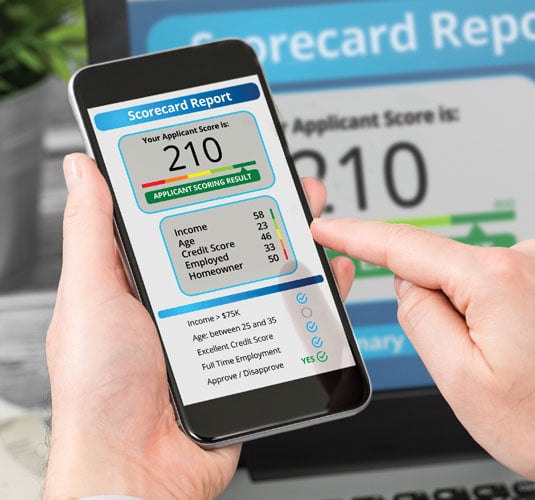
Financial Services
Altair’s 30-year history working with financial service organizations – including many of the world's largest banks, credit unions, and mortgage service providers – means we understand how financial services analytics help organizations in the areas of risk mitigation, regulatory oversights, new customer engagement channels, operational insight, and more. Our easy-to-use, no-code data transformation, machine learning, and real-time data visualization and stream processing platform empowers executives, financial analysts, and data scientists to gain insight using governed, trusted, and accurate data.
Reconciliation
Leverage automated workflows that minimize human interaction across the enterprise and automates bank reconciliation tasks. Consolidate thousands of reports and spreadsheets, standardize reporting formats, and improve forecasting. Seamless integration with robotic processing automation (RPA) helps financial services reduce costs and cut inefficiencies from back office operations.
Lending Lifecycle
Streamline the lending lifecycle and mitigate risk. Altair’s experience in loan onboarding, scorecards for origination, loan portfolio and servicing, collections optimization, and changes to credit lines are the many areas in which a single financial services analytics platform is used by many of the world’s banks and credit unions.
Electronic Trading
Analyze market conditions and trading activity to make smart decisions. Identify cases of potential spoofing, quote stuffing, wash trading, and other fraudulent activity. Score traders based on the risk they take on and compare their current performance to past performance. Analyze real-time and historical financial data to view all trading activity and prevent fraud.

Detect Fraudulent Activities
Raw data arriving in PDF or text-based reports from clients and third-party systems can create confusion due to double payments, cash or billing schemes, and other types of fraud. Altair's financial services analytics and data preparation solutions can automate data extraction and transformation from these formats and apply advanced fraud detection techniques such as Benford’s Law or Gestalt tests. Easily generate and deploy business rules using Altair predictive analytics to trigger against probable fraud. Altair’s deep learning is superb at modeling complex relationships between inputs, outputs, and finding fraudulent patterns in large amounts of financial data.

Credit Origination
Common financial services analytics struggle to model risk accurately, transparently, and in regulatory compliance. This can be especially challenging when trying to determine who might expose risk to the business when offering lines of credit to existing or new applicants. With Altair’s financial services analytics solutions, the ability to score applicants of risk-based products or create a predictive credit scoring line increase or authorization requests can help financial service organizations better understand who might be at greater risk to default on credit loans. With this knowledge, organizations can leverage better collection approaches and deployment strategies.
Try Altair's Data Analytics Solutions
Start Here
Financial Marketing Analytics
Marketing teams are often challenged to predict how customers will respond to their campaigns. Several distinct and different datasets are required to tailor a successful marketing campaign that may focus on product cross-sell and upsell or on new customer acquisition. Altair removes the complexity of developing a marketing analytics campaign by automating and repeating processes used in machine learning models designed to show the success probability. Testing scenarios against changes in controllable and uncontrollable variables enables marketing campaigns to deploy a strategy that reaches the right audience, with the right message, using the right channel.

Electronic Trading
Delays in decision-making are costly in electronic trading – whether you’re dealing with equities, fixed income, FX, futures, or commodities. Waiting for end-of-day reports means you’re likely to miss profitable opportunities or fail to respond to threats to compliance until it’s too late. Altair gives traders, quants, and compliance officers the financial services analytics tools they need to build and deploy their own real-time monitoring and analysis systems without needing to write any code. The Altair platform supports the requirements of high-frequency trading desks and allows them to immediately react to market events.
Featured Resources

Guide to Using Data Analytics to Prevent Financial Fraud
Financial fraud takes countless forms and involves many different aspects of business including; insurance and government benefit claims, retail returns, credit card purchases, under and misreporting of tax information, and mortgage and consumer loan applications.
Combating fraud requires technologies and business processes that are flexible in their construct, can be understood by all who are involved in fraud prevention, and are agile enough to adapt to new attacks without needing to be rebuilt from scratch. Armed with advanced data analytics, firms and government agencies can identify the subtle sequences and associations in massive amounts of data to identify trends, patterns, anomalies, and exceptions within financial transaction data. Specialists can use this insight to concentrate their attention on the cases that are most likely fraud.
This guide will help you understand the complex environment of financial fraud and how to identify and combat it effectively.

Altair Visual Analytics is Core Element in FlexTrade Securities Trading Program
Banks, hedge funds, asset managers, and other financial firms use FlexTrade software to reduce their trading costs, increase their trading velocity, and increase the profitability of their trading operations while maintaining compliance with all applicable banking laws and regulations.

Advance Your RPA Initiatives
Reduce hard costs, save time, and improve output quality in financial reporting. Robotic Process Automation (RPA) is the use of robotic software to automate time-consuming, high-volume, repetitive back-office activities. RPA is driving the need to streamline business activities that lower costs and eliminate human error. Altair fits perfectly with RPA initiatives by automating repeatable data transformation processes using models that standardize report formats designed to meet end user and regulatory requirements.

Streamline Audit Processes with Self-Service Data Preparation
Auditors are under significant pressure to keep expenditures down whether they work for an external audit firm or are part of an internal audit team. Achieving cost-effective audits requires organizations to do more with less - while maintaining or increasing audit quality. To succeed auditors not only need the right expertise and process but also the right data analytics tools.





